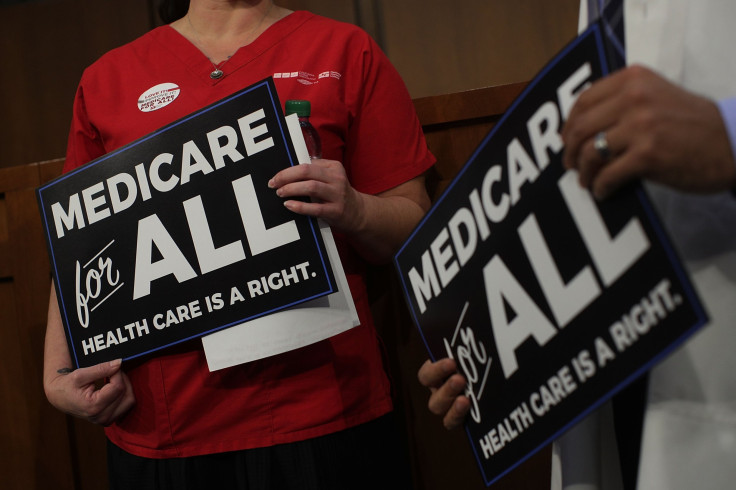Will People Lose Jobs Because Of Medicare For All? How Simplifying Paperwork Could Affect Healthcare, Insurance Industry Workers

Several of those seeking the Democratic presidential nomination have been touting Medicare-for-all as a means of achieving universal healthcare but have said little about the impact of such a plan on jobs in the insurance and medical industries.
Sen. Bernie Sanders, I-Vt., has introduced legislation that would provide healthcare coverage for every American while Sen. Elizabeth Warren has outlined her own plan and laid out a timetable for implementing it in three years. Both would eliminate private health insurance.
Businessman Andrew Yang supports the Medicare-for-all label, but would allow private insurance, as well. The rest of the field supports expanding healthcare coverage, several supporting a public option that could be added to Obamacare.
A recent Kaiser Family Foundation poll indicated 85% of Americans support the federal government doing more to provide health insurance, with 53% saying they support Medicare-for-all. The Pew Research Center puts support for Medicare-for-all at 60%.
Healthcare is big business these days, with revenue reaching $1 trillion in 2017, the most recent year for which data is available, the American Hospital Association reported. And people paid $867.5 billion in health insurance premiums in 2017, the Insurance Information Institute reported.
But like any other businesses, the healthcare and insurance industries don’t want to employ more people than they need, and since Medicare-for-all is expected to trim paperwork demands, the number of administrative jobs the two industries sustain could be threatened, displacing millions of workers.
A study in the New England Journal of Medicine estimated administrative costs account for a third of U.S. healthcare expenses, and research by the University of Massachusetts’ Political Economy Research Institute indicates an estimated 1.8 million healthcare workers could lose their jobs if the most ambitious Medicare-for-all proposals are enacted, affecting middle-class jobs like insurance brokers, medical billing workers and other administrative employees.
In Pittsburgh, where the decline of the steel industry shattered the economy, the former U.S. Steel complex has been turned into the headquarters of a major hospital system, employing about 20% of the regional workforce.
Claire Cohen, a Pittsburgh-area child psychiatrist, told Politico proponents of Medicare-for-all haven’t thought through their proposals’ impact.
“You don’t want to leave all these people in the lurch without jobs,” Cohen said.
Sanders has countered with vague promises of jobs elsewhere in the industry.
“When we provide insurance to 29 million people who today don't have it, when we deal with the problems of high deductibles and copayments and more people get the healthcare that they want and they need, weʼre going to have all kinds of jobs opened up in healthcare,” Sanders said at a 2016 CNN town hall.
Robert Pollin, co-director of the Political Economy Research Institute at the University of Massachusetts-Amherst, pointed out you can’t reduce administrative overhead and at the same time absorb those very same workers into a revamped system.
“You can’t have savings through administrative simplicity and more jobs. The government won’t need these people,” said Pollin, who has consulted with both the Sanders and Warren campaigns.
© Copyright IBTimes 2025. All rights reserved.






















